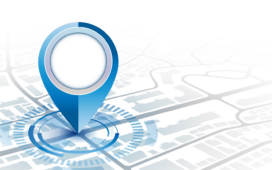In today’s digital age, technology continues to advance at a rapid pace, revolutionizing various aspects of our lives. One such advancement is online face recognition, a cutting-edge technology that has found applications in numerous fields. From enhancing security measures to improving user experiences, online face recognition is making waves across industries.
In this article, we will delve into some of the fascinating applications of this technology and understand its impact on different sectors.
Enhanced Security Systems
One of the primary applications of online face recognition is in the realm of security systems. With its ability to accurately identify individuals based on their facial features, this technology has become instrumental in strengthening security measures. It is widely used in airports, government buildings, and other high-security areas to authenticate and grant access to authorized personnel.
Face recognition online systems can quickly compare captured facial images with an extensive database of known individuals, flagging any potential threats or unauthorized individuals. By providing real-time identification and verification, these systems help prevent security breaches and improve overall safety.
-
Convenient Authentication and Authorization
Online face recognition has brought significant advancements in the field of authentication and authorization. It offers a convenient and secure alternative to traditional methods like passwords or PINs. Many smartphones now come equipped with facial recognition technology, allowing users to unlock their devices simply by looking at them.
In addition to device unlocking, face recognition is increasingly used for secure access to various applications, online accounts, and financial transactions. This not only simplifies the authentication process but also adds an extra layer of security by relying on unique facial features.
-
Personalized User Experiences
Another exciting application of online face recognition is in the realm of personalized user experiences. Businesses are leveraging this technology to understand their customers better and tailor their services accordingly. For instance, some retail stores use facial recognition to analyze customer reactions and emotions while browsing products. This data helps them optimize their marketing strategies and create a more engaging shopping experience.
Similarly, online platforms and streaming services utilize face recognition to recommend personalized content based on the user’s facial expressions, age, and gender. By understanding user preferences through facial analysis, these platforms can deliver targeted content, enhancing user satisfaction.
-
Improved Healthcare and Medical Diagnosis
Online face recognition has also made significant strides in the healthcare industry, particularly in medical diagnosis. Advanced algorithms can analyze facial features and detect early signs of certain medical conditions, such as genetic disorders or neurological diseases. This technology assists healthcare professionals in providing timely interventions and accurate diagnoses.
Furthermore, online face recognition is utilized in patient monitoring systems, allowing healthcare providers to track and analyze vital signs and facial expressions remotely. This enables better assessment of a patient’s well-being and facilitates remote consultations, making healthcare more accessible and efficient.
-
Efficient Surveillance and Public Safety
Surveillance systems have greatly benefited from online face recognition technology. By deploying cameras equipped with facial recognition capabilities, law enforcement agencies can quickly identify individuals involved in criminal activities. This helps in preventing crimes, locating missing persons, and maintaining public safety.
Moreover, face recognition systems can analyze crowd behavior and identify suspicious activities in real time. This early detection allows law enforcement agencies to respond promptly to potential threats and maintain law and order effectively.
Conclusion
Face recognition online technology has opened up a realm of possibilities across various industries. From enhancing security systems to improving personalized user experiences, its applications continue to evolve and leave a lasting impact. With ongoing advancements and increased adoption, we can expect this technology to play an even more significant role in shaping our future. As we move forward, it is essential to strike a balance between reaping the benefits of face recognition and addressing potential concerns regarding privacy and ethics. Nevertheless, the captivating applications of online face recognition promise a world where technology seamlessly integrates into our daily lives, revolutionizing the way we interact with the world around us.





